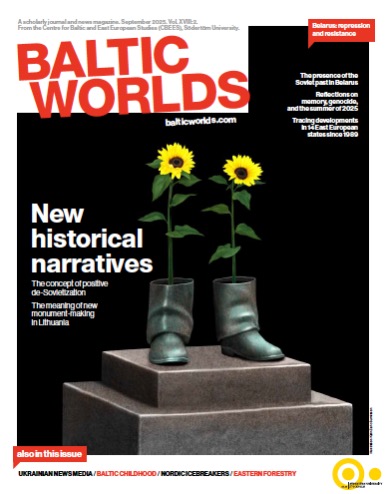Songs from Siberia The folklore of deported Lithuanians
This article focuses on the texts of songs, poems, prayers, and jokes created by Lithuanians deported to Eastern Siberia in large-scale relocations from the Lithuanian Soviet Republic in 1948 and 1949.

 Issue 2025, 2:
Issue 2025, 2: